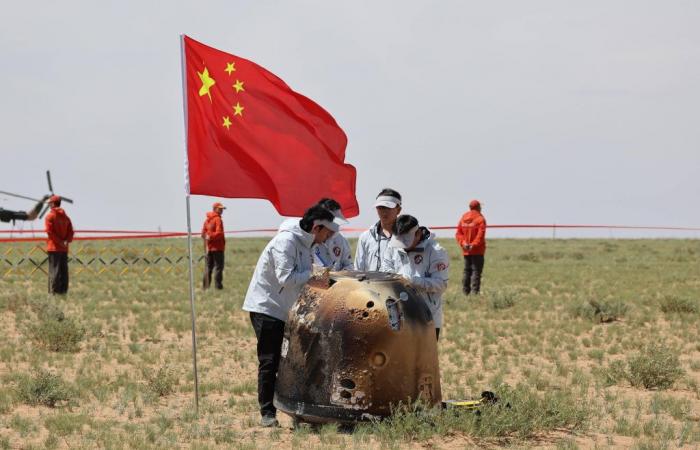The world’s first rock samples taken from the far side of the Moon have been taken from China. The ascent module of the Chinese lunar probe Chang’e-6 has in fact returned to Earth bringing with it the precious cargo.
The landing of the return capsule, followed live by Chinese state television, took place in the rural Siziwang Banner region of Inner Mongolia. The mission, says the China National Space Administration, was a success and is considered a milestone in China’s space program.
The Chang’e-6 missionnamed after the Chinese moon goddess, took off from Hainan province in southern China on May 3 and is landed on June 2 on the side of the moon that is never seen from Earth. The mission’s lander spent two days collecting rock and soil from one of the moon’s oldest and largest craters, the South Pole-Aitken Basin, using a robotic arm and a drill, then reuniting with the orbiter and rocketing towards home.
“This is a great achievement by China,” said Martin Barstow, professor of astrophysics and space science at the University of Leicester. “Recovering any samples from the moon is difficult, but doing so from afar, where communications are particularly difficult, is a real technological feat.”
The United States, China and the former Soviet Union have collected samples from the near side of the moon, but China is the first to bring home material from the other side. The intention was to collect up to 2kg of lunar rock and soil.
The latest champions they could shed light on long-standing mysteries in the ancient history of the moon and Earth. Ian Crawford, professor of planetary science at Birkbeck, University of London, said dating the SPA was a “key goal” of lunar science because it would pinpoint the time frame for lunar cratering.






